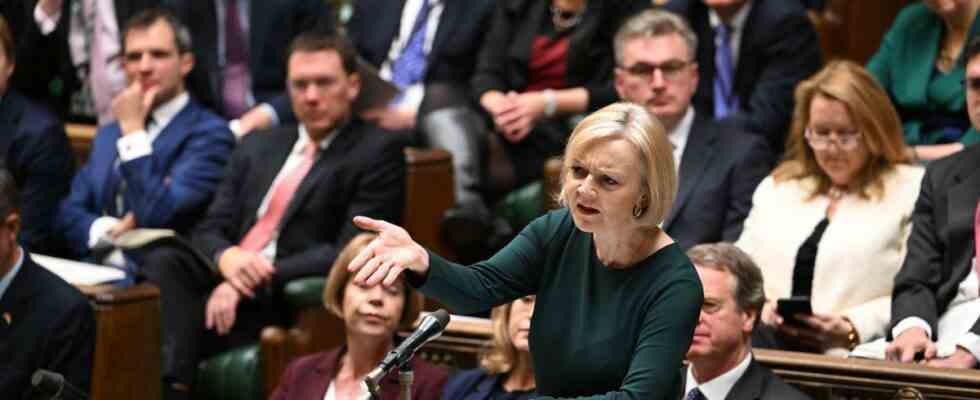An attempt to reassure the markets and the conservative ranks. Already threatened in her post after a month in power, British Prime Minister Liz Truss was forced to do a new about-face on Friday on her economic program and changed her finance minister. “It is clear that some parts of our mini-budget were going too far and too fast compared to what the markets expected,” admitted Liz Truss during a brief press conference in the early afternoon, before d announce that it is determined to increase corporate tax as planned by the previous Conservative government. She wanted so far to lower it from 25 to 19%.
“What I did today was to make sure that we have economic stability in this country,” defended the Prime Minister, who said she was “absolutely determined to keep her promise” of a stronger growth” for the UK economy.
“Changing Chancellor does not undo damage that has already been done”
In the hot seat after thirty-eight days in power, Liz Truss had announced a little earlier the dismissal of her finance minister Kwasi Kwarteng, replaced in stride by Jeremy Hunt. But not sure that this flash press conference, the concessions made and this mini-reshuffle, are enough to “reassure the markets” as Liz Truss wishes.
In the wake of his speech, the pound further accentuated its decline and the cost of British debt, which had been falling for several days, rose slightly. “Changing Chancellor does not undo the damage that has already been done”, “we need a change of government”, observed Labor opposition leader for the economy Rachel Reeves before the press conference. “Only Labor offers the leadership and ideas to secure the economy and get Britain out of this mess,” she tweeted.
Already names to replace Liz Truss
Hardly weakened, the Prime Minister, who only answered four questions from journalists, spoke in a particularly tense context. According to the British press, some MPs from his camp are already in the process of ousting him, in the face of disastrous polls predicting a crushing defeat for the Conservative majority before the next general election in 2024.
Political trust is at rock bottom. While the conservative congress had been marked at the beginning of the month by internal tensions and dissension, certain elected conservatives are privately mentioning names to replace Liz Truss. The British confronted in recent weeks with mortgage rates that are skyrocketing, in addition to inflation at 10%, are also losing patience.
Fifty percent want the Conservative Party to replace Liz Truss and almost half (43%) of voters who voted for the Conservative Party in the last poll want a new prime minister, according to a YouGov poll.

